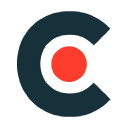I Built A $1.2M No-Code Agency At 17 Years Old
Hello! Who are you and what business did you start?
Hey everyone! My name is Jacob Klug and I’m a 20-year-old entrepreneur and the co-founder of Creme Digital. At Creme, we build beautiful products for a fraction of the cost and time.
Ranging from MVP’s for startups all the way to internal tools for Fortune 500 companies. All our software is built on no-code tools like Bubble, WeWeb, Xano, and more. I started the agency when I was 17-years-old in high-school, and have since scaled it to $100k/month.

What's your backstory and how did you come up with the idea?
As early as grade 6, I was hustling. My first ever venture was building an app that would notify my parents when I got to school safely. Throughout high-school it was running multiple different businesses from dropshipping, real estate photography, a marketing agency and more.




































